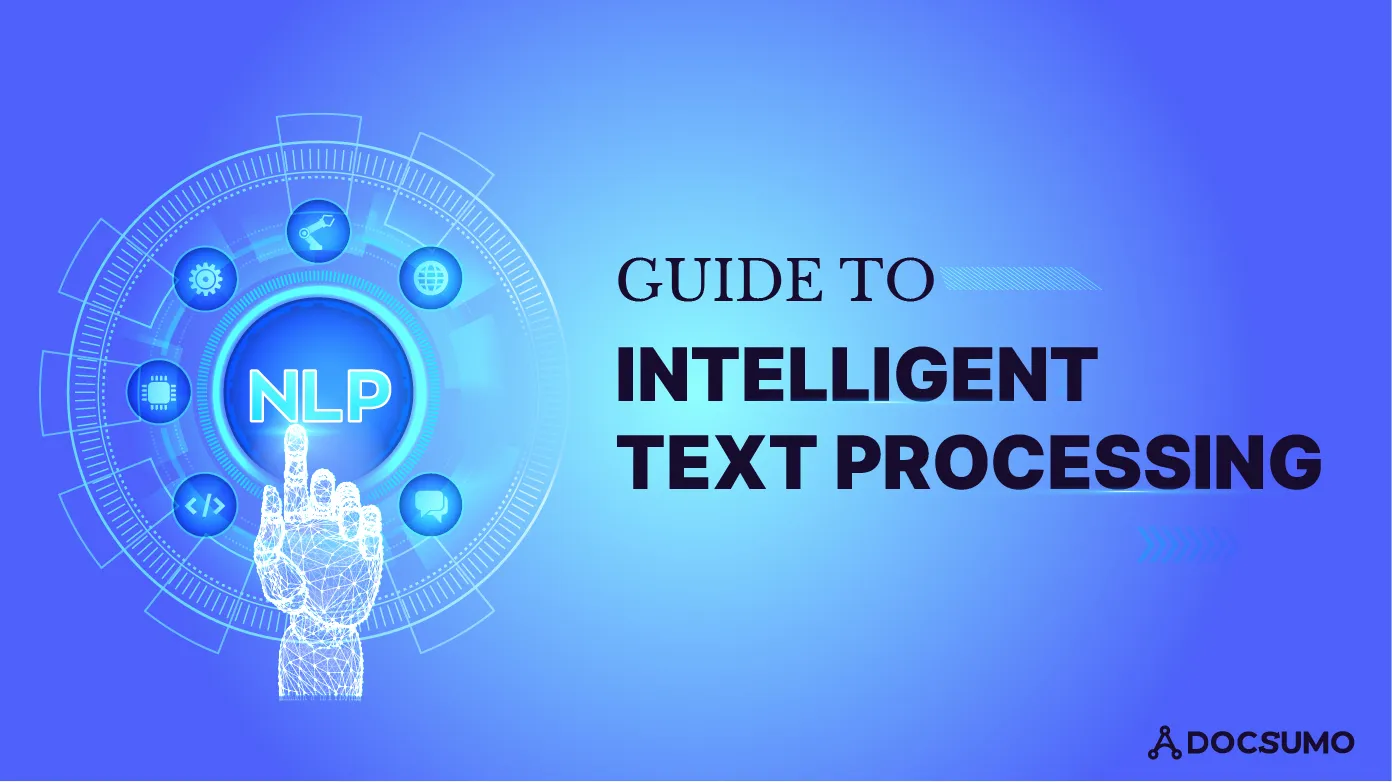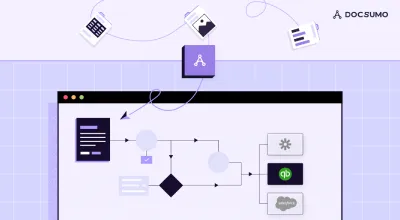Intelligent text processing is a subset of artificial intelligence (AI) that uses machine learning algorithms to extract information from unstructured data. In this blog post, we will dive deeper into how ITP works, its advantages, and how it can benefit your organization.
So, let’s jump right into it:-
What is Intelligent Text Processing (ITP)?
ITP works by using natural language processing (NLP) and machine learning algorithms to analyze and understand text. NLP is a field of AI that deals with the interaction between computers and human language. Machine learning algorithms are trained on huge amounts of data to recognize patterns and relationships between different elements. When applied to text data, ITP can extract important information such as entities, sentiment, and topics. This extracted information can then be used for various applications such as text classification and sentiment analysis.
The goal of intelligent text processing is to automate and optimize the process of extracting meaning from text, such as sentiment analysis, entity recognition, and topic modeling. It has various applications in industries such as finance, healthcare, and marketing, where there is a vast amount of textual data that needs to be analyzed quickly and accurately.
Component of Intelligent Text Processing
Let's have a look at some of components of Intelligent Text Processing (ITP):-
1. Natural Language Processing (NLP)
NLP is a key component of intelligent text processing. It involves the use of algorithms and computational techniques to analyze and understand human language, including grammar, syntax, and semantics.
2. Text Mining
Text mining is the process of extracting valuable information from unstructured text data. It involves techniques such as information retrieval, entity recognition, and sentiment analysis.
3. Machine Learning (ML)
ML is a subset of AI that involves the use of algorithms to learn from data and make predictions. In intelligent text processing, ML is used to train models to analyze and understand textual data.
4. Artificial Intelligence (AI)
AI refers to the ability of machines to perform tasks that typically require human intelligence, such as language understanding and decision making. Intelligent text processing uses AI to analyze and extract insights from unstructured textual data.
5. Knowledge Graphs
Knowledge graphs are a way of representing knowledge in a structured format. They provide a way of organizing and connecting information, making it easier to extract insights from unstructured data.
Intelligent Text Processing use-cases
Here are some real-life use cases of ITP:-
1. Sentiment analysis
Intelligent text processing can be used to analyze the sentiment of social media posts, customer reviews, and other forms of textual data. By identifying positive or negative language, businesses can quickly understand customer feedback and improve their products or services. Sentiment analysis tools can automate this process, providing real-time insights.
2. Chatbots and Virtual Assistants
Intelligent text processing is also used in customer service tools like chatbots, call center software, CRMs and virtual assistants, enabling them to understand and respond to customer inquiries and requests more efficiently. In fact, deploying contact center ai can further enhance these capabilities, allowing for even more sophisticated customer interaction and service personalization.
3. Fraud detection
Financial institutions use intelligent text processing to identify fraudulent activities in customer accounts. It helps in analyzing patterns of transactions and detects suspicious activities that could indicate fraudulent behavior.
4. Content moderation
Intelligent text processing can be used to moderate user-generated content, such as comments on a blog or social media posts. It can identify and remove inappropriate content, such as hate speech or spam, before it reaches other users. Implementing UGC management tools with AI capabilities simplifies moderation at scale to foster healthy online communities. Automated UGC management tools enable preset filters while allowing human review of gray areas, balancing efficiency with nuanced content control.
5. Document summarization
Intelligent text processing can be used for document processing and summarizing large volumes of text, such as legal documents, medical records, or research papers. It can analyze the text to identify key concepts and generate a summary that provides a quick overview of the document's content.
Benefits of using Intelligent text processing
Intelligent text processing offers numerous benefits to businesses and organizations, including:
1. Improved efficiency
Intelligent text processing automates the process of analyzing and understanding textual data, which saves time and reduces the need for manual analysis. It enables businesses to quickly extract valuable insights from large volumes of unstructured data.
2. Enhanced accuracy
Unlike manual analysis, which can be prone to errors, intelligent text processing uses advanced algorithms to analyze textual data accurately. It reduces the risk of human error and ensures that insights derived from the data are reliable.
3. Better customer insights
Intelligent text processing enables businesses to understand their customers better by analyzing their feedback and preferences. By analyzing customer feedback, businesses can identify areas for improvement and tailor their products and services to meet customers' needs.
4. Cost-effective
Intelligent text processing can be a cost-effective alternative to traditional data analysis methods. It eliminates the need for manual analysis, which can be time-consuming and costly.
5. Improved decision making
Intelligent text processing provides businesses with valuable insights into their customers' preferences, opinions, and feedback. It helps businesses make informed decisions about product development, marketing strategies, and customer service.
Summing Up
Intelligent text processing is a rapidly-evolving field that can greatly benefit organizations. By understanding how ITP works and its advantages, CTOs can make informed decisions about integrating ITP into their organizations. From improving customer experience to compliance and risk management, ITP provides numerous benefits that can help organizations make better decisions and improve operations.


.webp)

![What is Intelligent Document Processing (IDP) Software? [Comprehensive Guide]](https://cdn.prod.website-files.com/64be86eaa29fa71f24b00685/658c12d4416cf5fac4c29322_What%20is%20Intelligent%20Document%20Processing%20(IDP)%20Software_%20Thumbnail.webp)

.webp)
.webp)
.webp)
.webp)